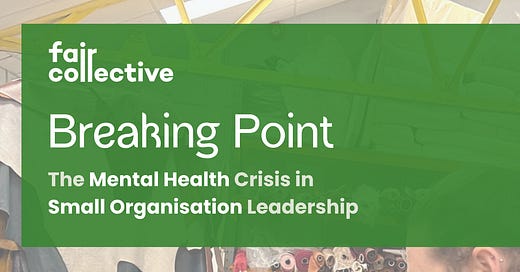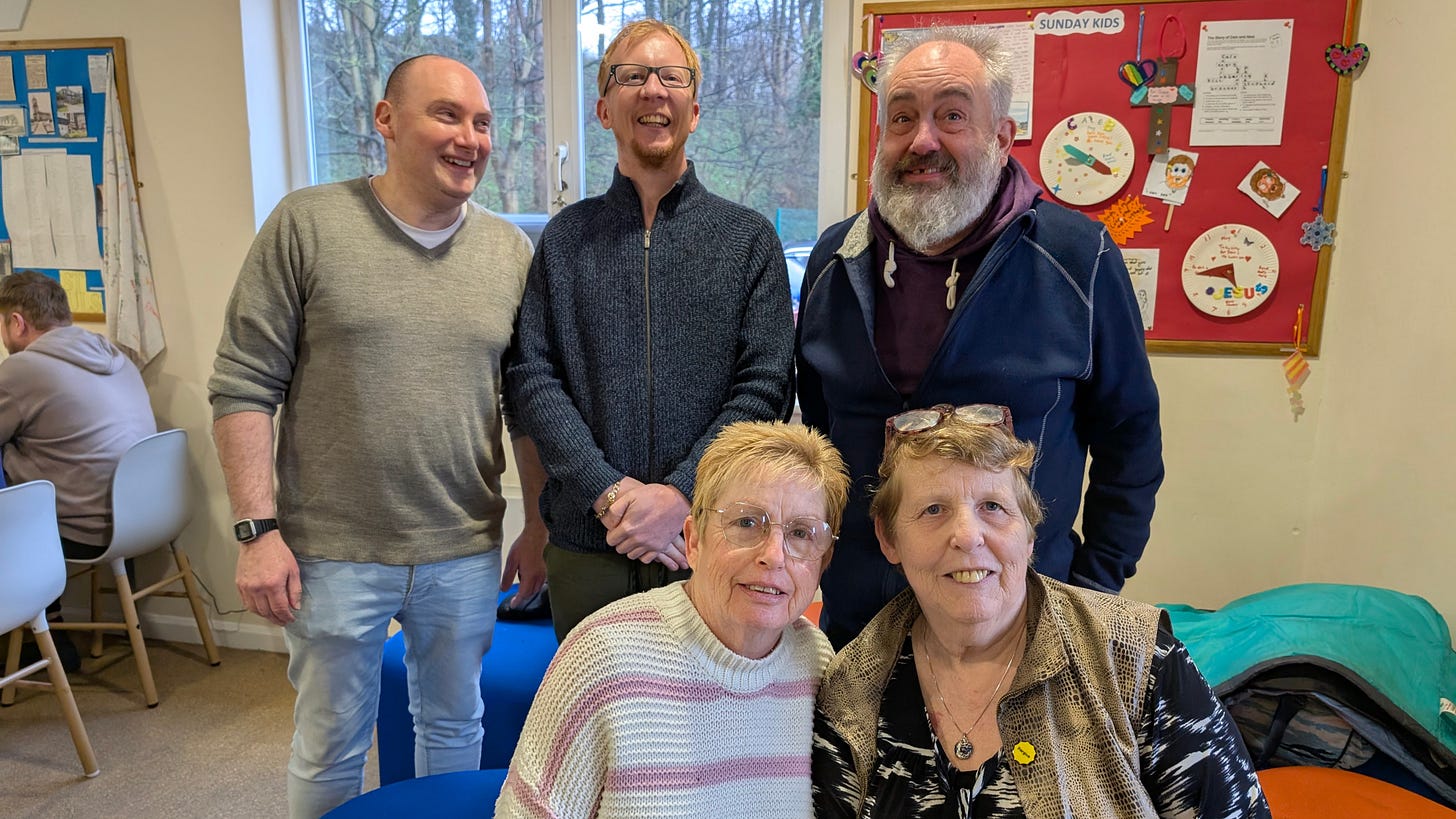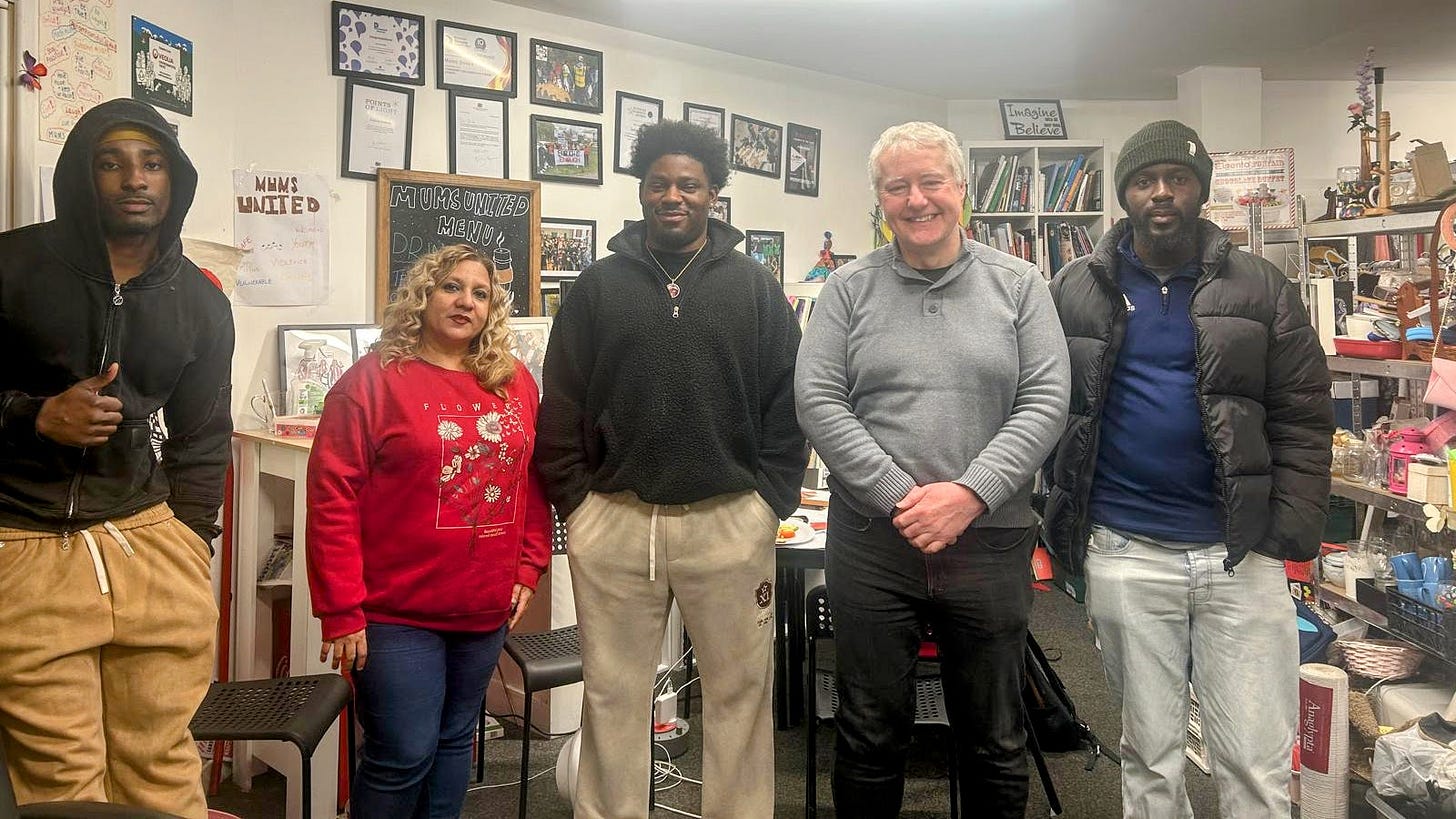“We don’t heal in isolation, but in community.” — S. Kelley Harrell
Sheffield has long been known for its resilience. A city forged in steel and strengthened through community, we have a proud history of pulling together when times are tough. But there’s a crisis quietly unfolding in our midst—one that affects the very people who work tirelessly to keep our communities strong.
Leaders of small organisations—those running charities, social enterprises, and grassroots initiatives—are facing a mounting mental health crisis. The newly released report, Breaking Point: The Mental Health Crisis in Small Organisation Leadership, offers an urgent call to action.
When Passion Comes at a Cost
The research, produced by Fair Collective in partnership with NCVO, sheds light on the heavy toll leadership takes in the social impact sector. A staggering 85% of small organisation leaders report that their role has negatively affected their mental health, with 20% experiencing severe impacts. This isn’t just about emotional strain; the crisis manifests physically—disturbed sleep, exhaustion, and even heart attacks linked to chronic stress.
It’s a cruel irony that those dedicating themselves to Sheffield’s wellbeing are struggling to safeguard their own. Many feel isolated, financially stretched, and responsible for their teams’ welfare while neglecting their own. The sheer weight of responsibility—securing funding, navigating governance, and dealing with public scrutiny—creates an unsustainable burden.
A Systemic Challenge
The report identifies several key factors driving this crisis:
Financial precarity: Small organisations operate on shoestring budgets, often relying on short-term grants that leave leaders in a constant state of uncertainty.
Multi-faceted roles: Leaders juggle HR, finance, strategy, and frontline service delivery, often with little to no training.
Lack of support: Only 29% of leaders feel well-supported, while 67% have no budget for mental health support.
Emotional toll: Many leaders work with vulnerable communities, leading to vicarious trauma, compassion fatigue, and burnout.
Board dynamics: While trustee boards can be a source of strength, they can also contribute to stress when governance structures fail to provide adequate support.
These challenges aren’t just statistics; they represent the lived realities of people we know—friends, neighbours, and colleagues who are quietly holding too much.
Celebrating Our Project Ignite Leaders
Sheffield is blessed with a dedicated group of leaders who continue to serve despite these immense pressures. Project Ignite has begun to shine a light on some of these remarkable individuals:
Kate West, Nasim, and Janine at Family Voice—creating safe, supportive spaces where connection and creativity thrive.
Mick Hartley at Kickback Recovery—leading a community of resilience and transformation for those recovering from addiction.
Sahira Irshad at Mums United—championing the fight against youth violence and empowering families.
Karen and the volunteers at Sheffield City Knights—building self-sufficiency and strengthening connections for those facing isolation.
Harun at Unity Outreach—tirelessly supporting Sheffield’s most vulnerable through essential services and genuine care.
Michael Thompson and Adam Seymour at RiteTrax CIC—using music and creativity to empower young people and underserved communities.
Kathryn Littlewood and the team at KeyRing—developing independent networks of mutual aid and community resilience.
Tina Sampson-Smith at St Paul’s Community Food Pantry—fostering dignity, belonging, and practical support through food and connection.
Our leaders embody the spirit of Project Ignite—connection, compassion, and community-led change. Their work reminds us that behind every organisation is a person who needs to be seen, supported, and valued.
How We Can Show Up for Sheffield’s Leaders
Through Love Sheffield, we believe in the power of connection to transform lives. Addressing this crisis means taking collective responsibility for those who carry the weight of community leadership.
Here’s how we can help:
Recognition & Appreciation: A simple “thank you” can go a long way. Acknowledge the leaders in your community, let them know they’re valued.
Practical Support: If you have a skill—be it accounting, marketing, or mentoring—offer your time to help lighten their load.
Funding Advocacy: Support calls for increased core funding, ensuring organisations can invest in leadership wellbeing.
Creating Safe Spaces: Encourage honest conversations about mental health in leadership—break the stigma of struggling.
Building a Network of Care: Connect leaders with peer support groups, mental health resources, or even just a trusted friend to talk to.
This is a Sheffield-wide issue, but it is within our power to change. By rallying around our local leaders, we can create a city where community work doesn’t come at the expense of personal wellbeing. Please forward this newsletter to your friends—we’re stronger together.
A Sheffield Where We All Thrive
Through Love Sheffield, we stand for a city built on connection, kindness, and creativity. We want our leaders to flourish—not just survive. Their wellbeing is intertwined with the health of our entire community.
This report is a wake-up call. Let’s answer it together.
If you know a leader who needs support, or if you have ideas on how we can collectively ease this burden, join the conversation. Let’s make sure that Sheffield remains a place where those who care for others are also cared for.
With warmth and solidarity,
Brian Mosley
Founder, Love Sheffield & Project Ignite
Author of "Uniting Hearts, Igniting Change"
🔹 Share this newsletter with someone who needs to read it.
🔹 Nominate a community leader we should celebrate in our next issue.
🔹 Stay connected: Join the Love Sheffield network and be part of the change.







This is why I say that we are like shepherds and few and far between, hills apart and surrounded by sleepy sheeple of Sheffield. We have only God to rely on. Too much insularity and too many ostriches around. It's an... UPHILL job for us!